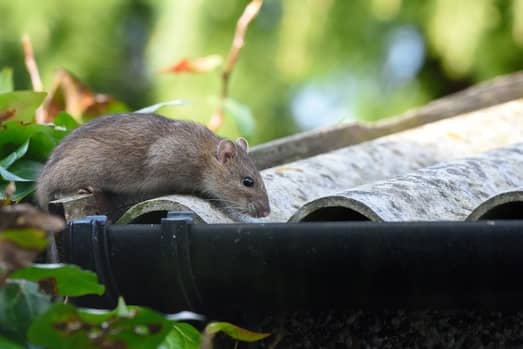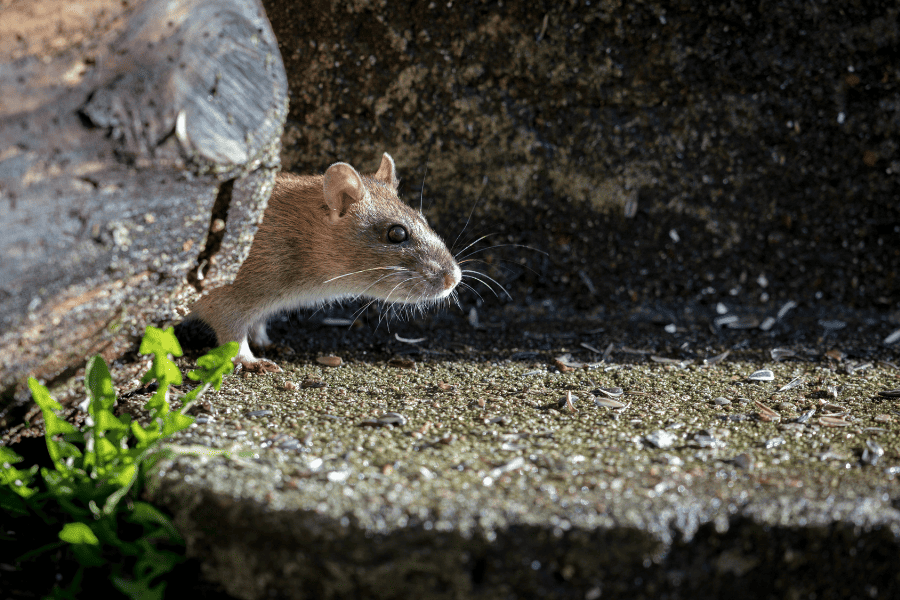READY TO GET STARTED?
REQUEST A FREE ESTIMATE
Fill out the form below or call (888) 466-7849 for a free, no-obligation estimate.

As temperatures drop in Florida during December, homeowners often find themselves facing an increase in rodent activity. While Florida’s warm climate means pests like rats and mice are a year-round concern, winter months bring a few specific challenges that make Florida rodents more of a problem. Here’s why December is a particularly tricky time for rodent control in the Sunshine State.
Even though Florida doesn’t experience extreme winter weather, the cooler temperatures of December still drive rodents indoors. Rats, mice, and squirrels are all looking for warmth, food, and shelter as their natural outdoor food sources become scarcer and the air chills. Your home, with its heat and accessible food, becomes an attractive target.
A small rodent infestation in December can rapidly turn into a big problem. Mice and rats breed quickly—mice can reproduce as often as every 3 weeks! If you don’t address the issue right away, a handful of rodents can turn into dozens, causing more damage and creating more health risks as the season goes on.
Rodents are notorious for chewing on electrical wires, insulation, and even structural elements of your home. This can result in costly repairs and pose fire hazards. In addition to physical damage, rodents are carriers of diseases like salmonella, leptospirosis, and hantavirus. When they enter your home, they bring these health risks along with them.
As the days get shorter and the nights get longer in December, rodents become more active after dark. They often search for food during nighttime hours when there’s less human activity. If you’ve noticed strange noises or signs of gnawing at night, it could be a sign of an infestation.
The best time to deal with a potential rodent problem is before it gets out of hand. In December, rodent-proofing your home is crucial. Sealing entry points, setting traps, and eliminating food sources are all effective measures to keep rodents out. The earlier you address the problem, the easier and more cost-effective it will be to eliminate.
December presents unique challenges for Florida homeowners when it comes to rodent control. As Florida rodents seek shelter from the cooler weather, they can cause damage, spread diseases, and multiply quickly. By being proactive in rodent prevention, you can ensure your home stays clean and rodent-free throughout the winter months. If you encounter persistent rodent issues, consider contacting a local pest control company for expert assistance and tailored solutions to protect your home.

Living in Bonita Springs offers beautiful weather and stunning scenery, but it also comes with the challenge of managing pests—especially rodents. These unwelcome guests can cause damage to your home and pose health risks. Understanding successful methods in effectively dealing with rodents is essential for maintaining a safe and comfortable living environment.
In Bonita Springs, homeowners often encounter a few common rodent species:
Identifying a rodent problem early can save you significant headaches down the line. Look for these signs:
Seal Entry Points: Rodents can enter your home through surprisingly small gaps. Inspect your property for cracks and openings around doors, windows, and foundations. Use caulk or weatherstripping to seal these entry points.
Maintain a Clean Environment: Keeping your home clean is one of the most effective deterrents. Regularly vacuum and wipe down surfaces to eliminate food particles. Store food in airtight containers and promptly clean up spills.
Manage Outdoor Spaces: Trim trees and shrubs away from your home to prevent rodents from using them as access points. Keep your yard tidy, removing debris and piles of leaves that can provide hiding spots.
Use Natural Deterrents: Consider using natural repellents, such as peppermint oil, which can deter mice and rats. Soaking cotton balls in peppermint oil and placing them in areas where you suspect rodent activity can help keep them away from your property.
Professional Help: If the infestation is severe or you’re unsure how to handle it, calling a pest control professional is the best option. They can assess the situation and implement effective strategies to eliminate rodents properly.
Dealing with rodents in Bonita Springs requires vigilance and proactive measures. By sealing entry points, maintaining cleanliness, and utilizing effective rodent control methods, you can protect your home from these critters.

Common to the Florida area, rodents can cause significant damage to our homes by chewing on wires, destroying insulation, and contaminating our living areas. There are several types of rodents in Florida that homeowners should be aware of to properly prevent them from invading. Check out our list of common rodents and how to prevent them from invading your home.
If you suspect that any of these common rodents have invaded your home, it’s best to reach out to your local pest control company for help. These expert professionals will be able to remove, exclude, and prevent them in the future!